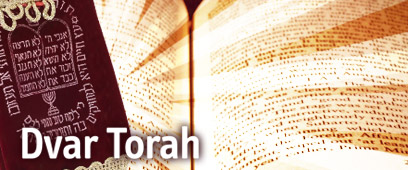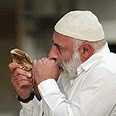

Archive Photo
Photo: Gil Yochanan
In the Gemara Rosh Hashana 16, it says that the entire world is divided into three groups on Rosh Hashana, each of which transcribed into a different book.
- To listen to the Dvar Torah click here
The first book is for those who are righteous, who have done more good deeds than bad deeds during the previous year, and they are signed and sealed immediately for life. The second book is for the wicked that have done more bad deeds than good during the previous year, and they are signed and sealed immediately for death.
The third book is for those who are in the middle, who have equal good deeds and bad deeds, and their judgment is suspended until Yom Kippur.The Gemara says that if these people increase their good deeds during this period between Rosh Hashana and Yom Kippur they will be then sealed for life, and if not they will be sealed for death.
The Rambam cites this piece of Gemara, but changes one word. Whereas the Gemara seems to say that it’s enough for the middle person to do one more good deed than bad to merit life, the Rambam says that the person has to do Teshuva to merit life. This is a big difference, since doing one good deed is relatively easy, whereas doing Teshuva is a big burden to do during this period.
Indeed, the Gemara seems to be more logical, since according to the rules of the judgment, once the person does one more good deed than bad they should be counted among the righteous.
This question is asked by the commentators on the Rambam, including Rav Itzhele of Petersburg, a disciple of Rabbi Yisrael Salanter, in his work Kochvei Or. He asks even further that even if the middle person remains a tie between good deeds and bad he should merit for life since God is benevolent and always gives people the benefit of the doubt.
He answers that this time period between Rosh Hashana and Yom Kippur is a very serious one, since during this time God is reaching out to us to do Teshuva. If a person does not do Teshuva during this time period, it’s not just one bad deed, but it’s a much deeper and more profound error, and no matter how many good deeds the person has, the person will not merit to be judged for life for the coming year.
Who is righteous?
There is perhaps another answer to this question based on the Pachad Yitzchak, the seminal work of Rabbi Yitzchak Hutner, in his essays on Rosh Hashana. He says that our understanding of our Gemara is wrong. These three categories of people are not based on simple numbers of good deeds and bad deeds, but rather are primary fundamental character traits of what we are committed to.
A righteous person is one who is committed to doing good deeds, even if they don’t always do it, and a wicked person is one who is committed to doing bad deeds even if they don’t always do it. The middle person is one who is not committed to anything, and sometimes does good deeds and sometimes does bad deeds.
Rav Hutner explains that this person needs to decide what they are committed to, and needs to undergo a complete character transformation, which the Rambam refers to as Teshuva. It’s not enough for us to do the right thing more often than the wrong thing, but rather we need to be committed to always do the right thing, and in that merit may we be judged for life on this Yom Kippur.
Rabbi Dovid Gottlieb is the rabbi of Congregation Shomrei Emunah, Baltimore, MD
Courtesy of the Orthodox Union Take Five for Torah program















